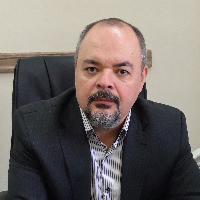An Analysis of Operational Challenges of Islamic Economy in Iran
More than four decades have passed since the implementation of Islamic economy in the country. During this period, the operationalization process of Islamic economy has seen many changes. From the formation of very idealistic expectations in the early years about the capabilities of the Islamic economy in terms of responding to all human needs in material life, to the implementation challenges and the gap between the initial expectations and the existing performance in the country's economy. In order to diagnose the current performance of the Islamic economy in the country, the study of the issue from the perspective of the supply side and the demand side was put on the agenda. The results indicate that there is a big gap between what is currently available as the experience of operationalization of Islamic economy and what was expected from the category of Islamic economy at the beginning of the revolution. In addition, it seems that in the supply side of Islamic economy, both in terms of scientific and intellectual foundations and in terms of providing software platforms, in comparison with the demand side of Islamic economy, a relatively more appropriate performance is observed. In the end, it is recommended to pay attention to some facts in order to redefine the operationalization process of Islamic economy in the country. The components of the Islamic economy are not the same in operational terms, the society is an entity that changes over time, the Islamic government should also be committed to policy-making in accordance with the operationalization of the Islamic economy, etc.
-
A Pattern for Iron Ore Mines Financing
Mehdi Ali Hosseini, Mohammad Hashem Botshekan *, , Moslem Peymanifurushani
Asset Management and Financing, -
Estimating the Trend in Health Time Preference Rate (A Case Study of High-Income Countries)
Raziyeh Mohammadi Saber, Abbas Assari Arani *, Amir Mozayani, Lotfali Agheli
Iranian Economic Review, Summer 2024


